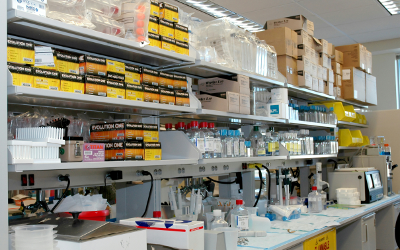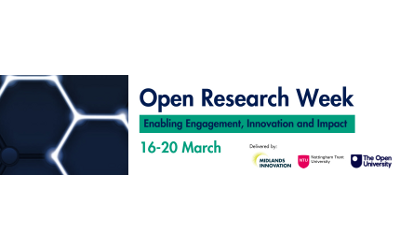New project launched to bolster pandemic preparedness in Africa

In a significant step towards improving pandemic preparedness in Africa, a project at The Open University titled "Strengthening and Reimagining Health-Industry Policy Linkages for Pandemic Preparedness in Africa" has just received funding of £200,000. This initiative aims to address critical gaps in health and industrial policies, with a particular focus on South Africa and Kenya.
The need for this project became evident during the COVID-19 pandemic, which exposed significant vulnerabilities due to Africa's reliance on global supply chains for essential medical supplies. The project builds on insights from a 2019 Economic and Social Research (ESRC)-funded initiative on Innovation for Cancer Care in Africa, led by Professor Maureen Mackintosh. These insights highlighted the pressing need for robust local industrial capabilities to support health systems efficiently.
At the heart of the project is the development of innovative policy bundles designed to foster local production and innovation. These policy bundles will focus on critical areas of health-industry policy linkages such as regulatory, procurement and innovation policies, all aimed at building resilience within the health and industrial sectors.
The project seeks to achieve key objectives including enhancing pandemic preparedness by developing broad-based industrial capabilities in South Africa and Kenya, and creating policy bundles through innovating policy frameworks that support local health and industrial resilience.
The project is a collaborative effort involving the University of Johannesburg and the African Centre for Technology Studies, alongside previous partners like the Kenya Medical Research Institute (KEMRI). These partnerships are crucial for the project's success, ensuring the integration of local expertise and resources.
Funding for the project comes from the British Academy, building on previous financial support from the ESRC and Open Societal Challenges. These funds have facilitated preliminary studies and the formulation of the current project proposal.
The project's impacts are envisioned in both the short and long term:
Short-term success
- Stakeholder Engagement: Involving policymakers and private stakeholders in developing and implementing innovative policy bundles
- Capacity Building: Enhancing the skills of early career researchers and local teams in South Africa and Kenya through targeted training and workshops
- Comprehensive Databases: Establishing databases to track policy outcomes and impacts
Long-term success
- Policy Influence: Developing and adopting innovative policy bundles that become integral to industrial and health policies in the Global South
- Healthcare Resilience: Creating resilient healthcare systems capable of effectively responding to future pandemics
- Industrial Capabilities: Strengthening local industrial capabilities to reduce dependency on global supply chains
The project team includes Professor Dinar Kale, who has extensive experience with African institutions and global health initiatives. Collaborators from the University of Johannesburg and the African Centre for Technology Studies play key roles, with additional support from entities like VELAGRO Africa, a venture capital fund in Kenya.
The project aligns with all three of The Open University’s Open Societal Challenges themes by:
- Sustainability: Promoting long-term sustainability by developing resilient healthcare systems and local industrial capabilities
- Tackling Inequality: Addressing health inequalities by ensuring affordable and accessible healthcare in the Global South
- Living Well: Enhancing healthcare resilience to improve overall well-being and reduce the impact of future pandemics
Professor Kale, project lead stated, “This ambitious 18-month project follows on from insights resultant from a 2019 ESRC-funded initiative on innovation for cancer care in Africa, led by Professor Maureen Mackintosh. The earlier project involved partners in Kenya, Tanzania, and India, and highlighted gaps between health and industry policy linkages. With this new project and funding, we endeavour to make significant strides in pandemic preparedness, aiming to build a sustainable and resilient healthcare environment in Africa. We will do this by creating innovative policies and addressing strengthen of industrial capabilities required – the project is set to reduce the region's reliance on global supply chains and ensure better health outcomes for all.”
Contact our news team
For all out of hours enquiries, please telephone +44 (0)7901 515891
Contact detailsNews & articles

Open Research Week to spotlight innovation in 2026
Open Research Week will return from 16–20 March 2026, uniting Open University researchers and partners to explore how open practices drive engagement, innovation and societal benefit.